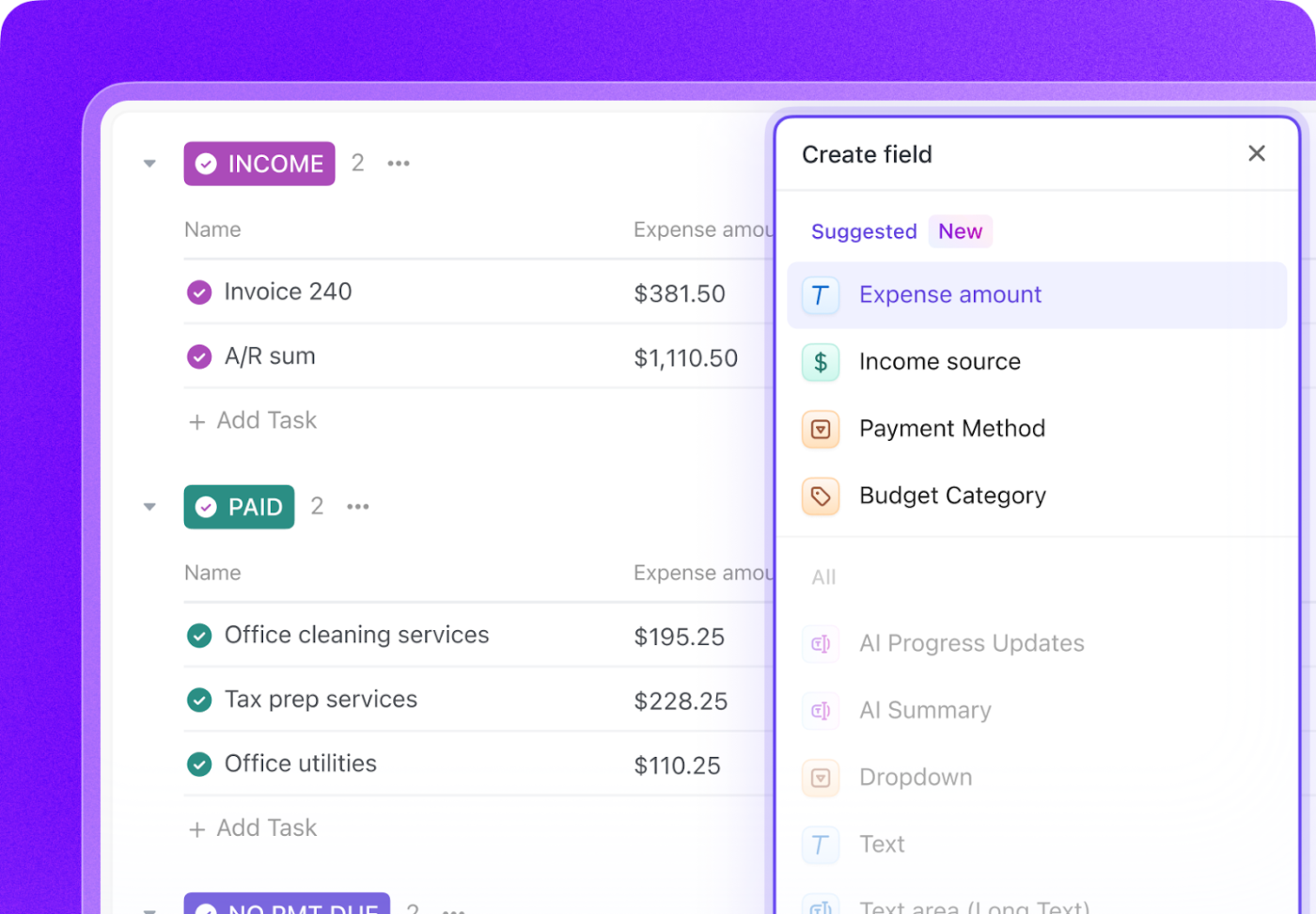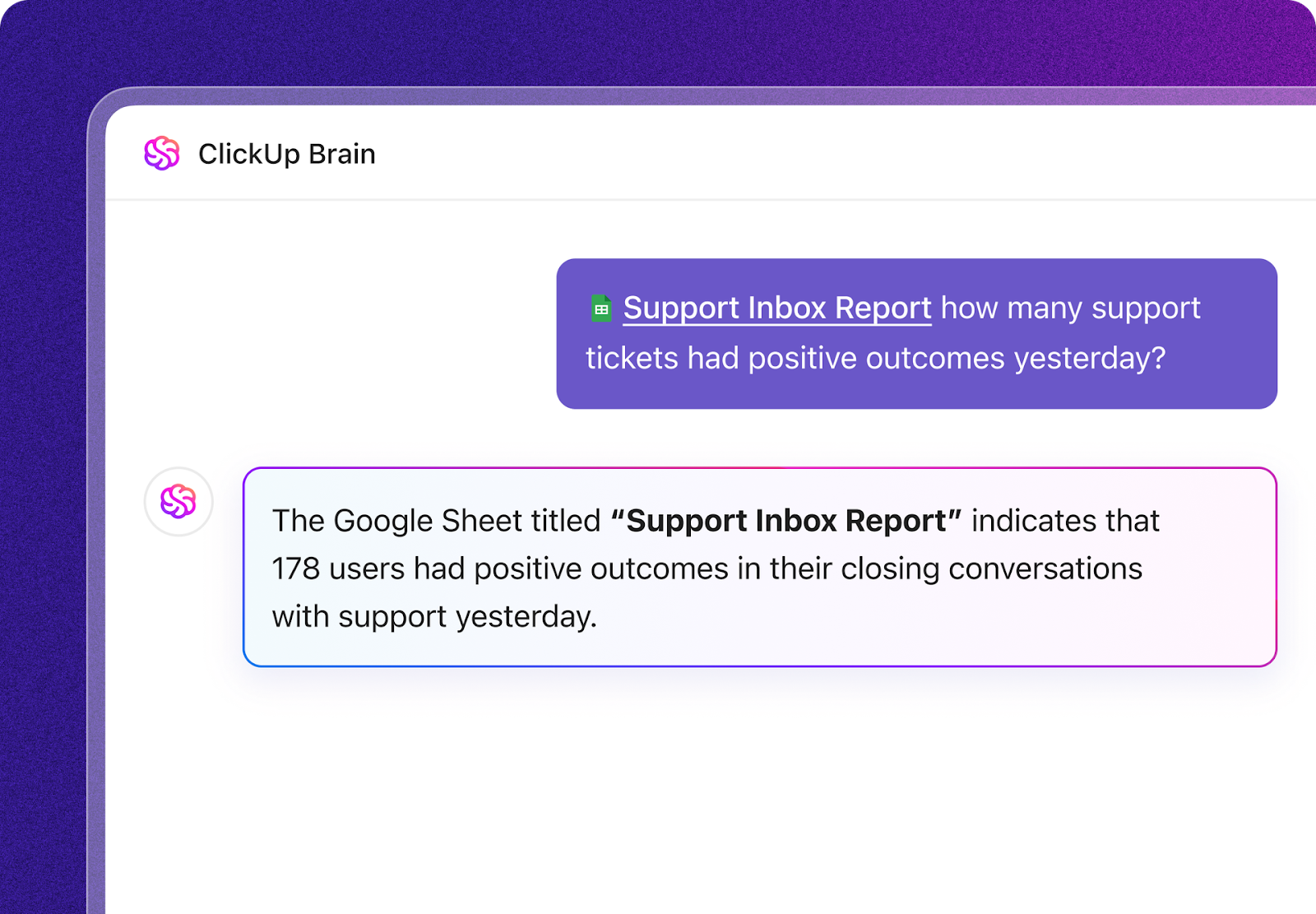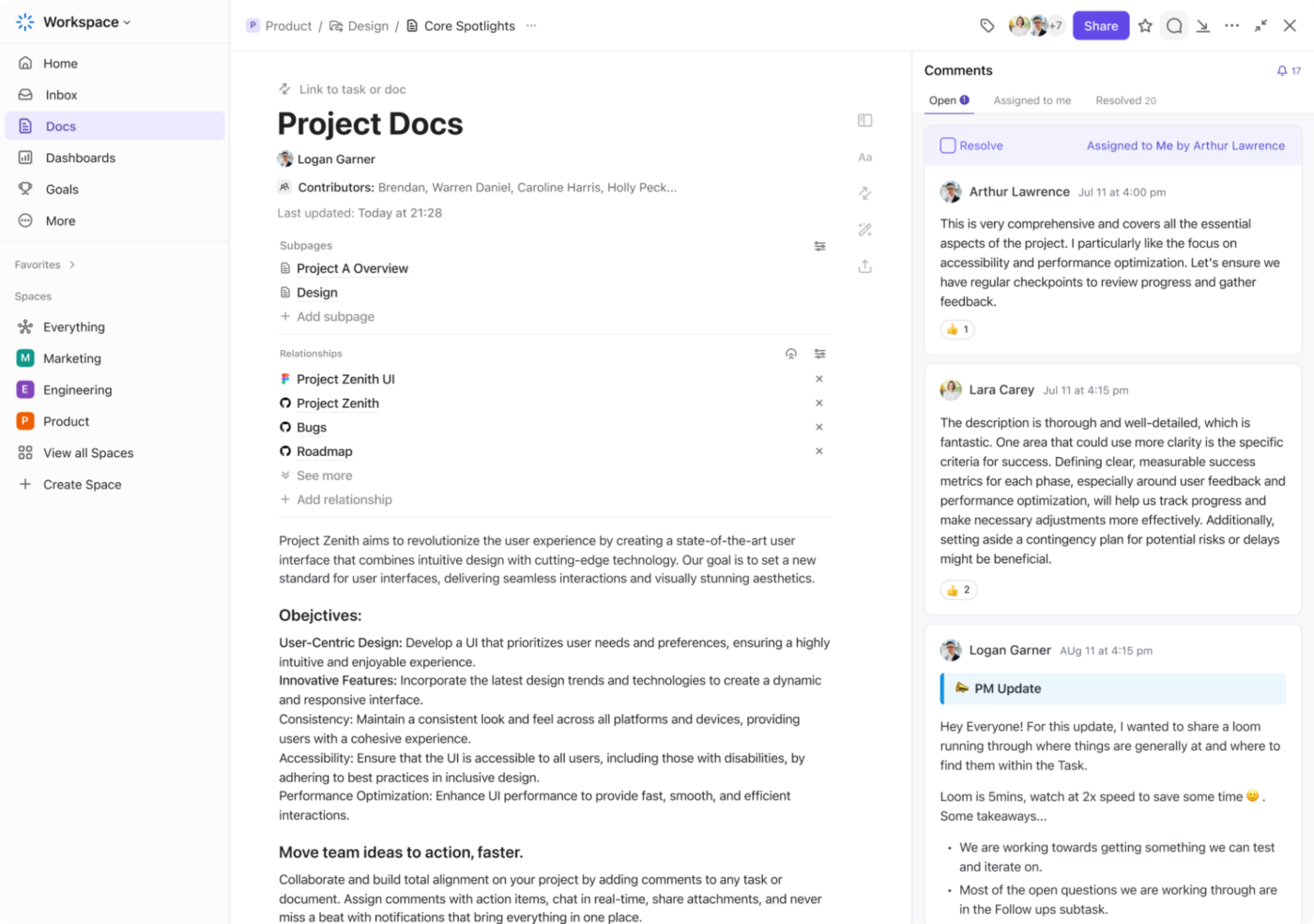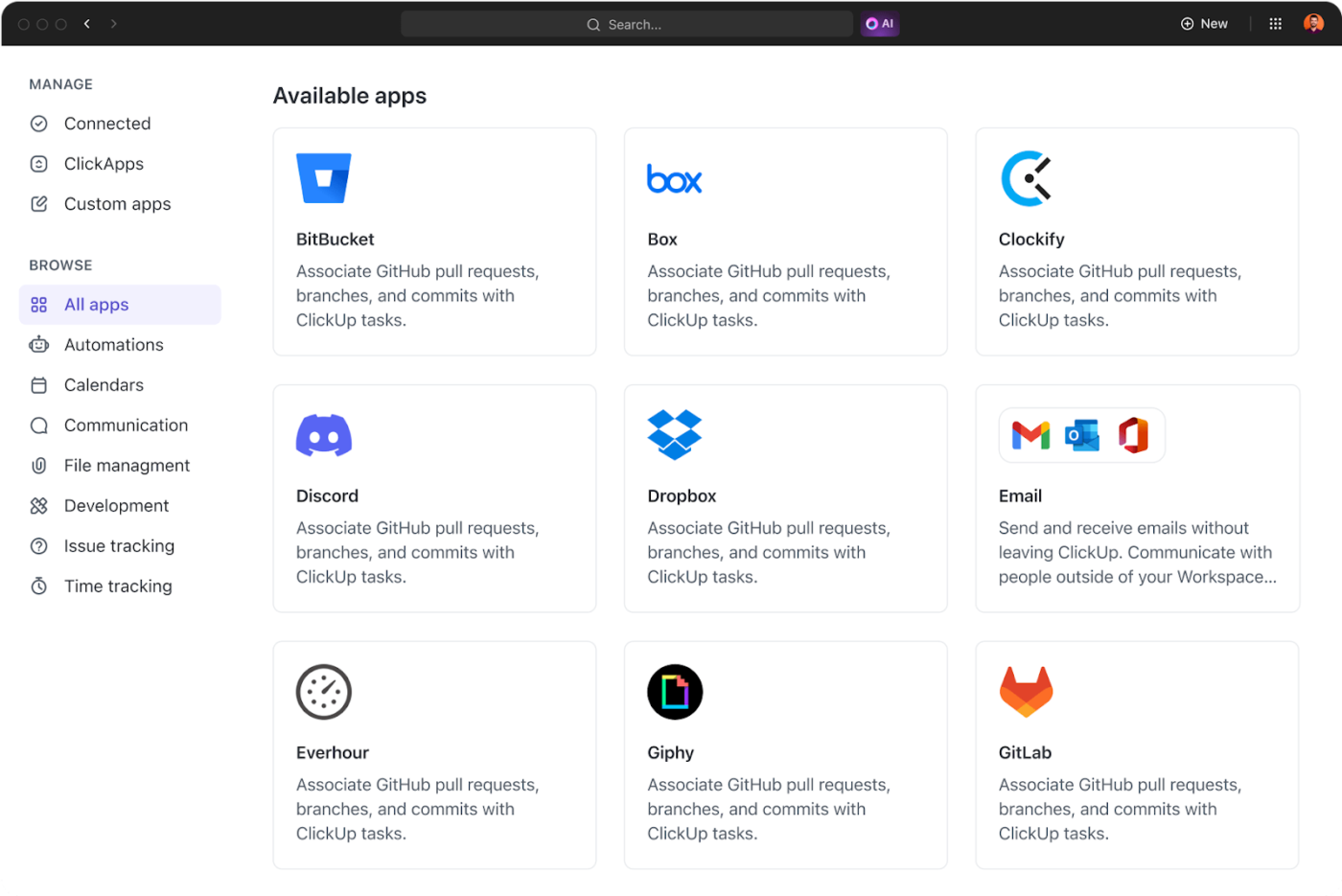How CRM Project Management Drives Improved Pipeline Control

Sorry, there were no results found for “”
Sorry, there were no results found for “”
Sorry, there were no results found for “”

Happy customers and clients are the driving force behind every successful business. To make it happen, both your customer relationship management workflows and projects need to be running smoothly.
That’s where a CRM project management solution comes in—combining the power of customer and project data to help teams deliver exceptional results. With CRM for project management, you can manage project tasks, sales pipeline management, project timelines, and contact management all in one place.
Take Amazon, for example. Its ability to recommend products is powered by CRM, while its on-time deliveries rely on robust project management. The result? Streamlined operations, improved customer satisfaction, and a clear path to sales growth.
In this blog, we’ll explore how integrating CRM and project management features can transform the way your team works and drives business success.
A CRM (Customer Relationship Management) system is a software solution that helps businesses manage interactions with customers, track leads, and facilitate sales, marketing, and support efforts.
📌 Example: Martin, a small business owner from LA, is setting up his first-ever business. Here’s what CRM takes care of for him:
➡️ Also Read: Best Free CRM Templates: Excel, Google Sheets & ClickUp
Now, imagine you’ve nailed your customer data, your CRM system is firing on all cylinders, and your sales pipeline is thriving. But without project management, you still have a massive problem on your hands: you can’t seem to delegate tasks effectively.
Projects are dragging, deadlines are slipping, and your team is stuck in a never-ending cycle of miscommunication. This is where project management CRM software can step in and enable greater visibility, combined with centralized task management, accurate reporting, and precise time tracking (for projects with billable hours).
If you are starting from scratch, ClickUp’s CRM template provides a lightweight yet powerful customer relationship management system.
Here’s all that you can tackle with the template:
CRM and project management serve different but complementary purposes. CRM (Customer Relationship Management) focuses on nurturing relationships with customers and leads, while project management is about planning, executing, and delivering projects. Increasingly, businesses are combining both functions—leveraging CRM platforms to manage project data, coordinate workflows, and improve the customer journey from sales to delivery.
This goes without saying—bringing CRM and project management software together saves you time while automating the tedious stuff so you can focus on real business growth. But how does that exactly play out? Let’s break it down with some real-world scenarios.
Switching between multiple systems leads to scattered customer data, missed updates, and duplicate work. With an integrated CRM and project management platform, everything from customer interactions to project details is centralized.
📌 Example: A consulting firm tracks client requests, projects, and invoices in one system, preventing miscommunication and delays.
Time is money, and delays cost both. With CRM project management software, teams can assign tasks, set deadlines, and automate approvals, reducing bottlenecks and keeping everything on schedule.
📌 Example: A software development company speeds up product launches by aligning its sales team and developers in a unified system. This essentially works as a client portal project management software to ensure clear communication on client needs.
Clients want updates—just not 20 emails a day. A CRM and project management system gives them controlled access to project progress, reducing unnecessary back-and-forth while maintaining transparency.
📌 Example: A marketing agency allows clients to track campaign status in real time, reducing the need for constant status meetings.
Sales, marketing, and customer service often work in silos. When project management and CRM systems are combined, teams stay on the same page, ensuring seamless handoffs and fewer missed opportunities.
📌 Example: A sales team easily transfers a deal to the implementation team once a contract is signed, reducing onboarding friction.
Repetitive manual work slows teams down. CRM project management tools automate key processes, such as lead assignments, follow-ups, and task approvals, so employees can focus on more valuable tasks.
Without insights, businesses run on guesswork. Integrated CRM and project management software implementation provides real-time dashboards and reports to track revenue, team performance, and project efficiency.
🧠 Did You Know: 48% of organizations identify as data-driven, doubling from just 24% a year prior, highlighting the rapid shift toward analytics-powered decision-making.
➡️ Also Read: Must-Have CRM Integrations for Your Business
Great, now that you know the significance of onboarding a CRM and project management system, here are the features to look for:
💡 Pro Tip: With ClickUp Brain, your CRM workflow becomes even smarter. Instead of manually digging through data, just ask the AI, and it will instantly retrieve insights from your project management system.

Now, imagine combining all the features we’ve just discussed with exceptional task management—that’s ClickUp for you.
As the everything app for work, it brings two powerhouse features together to consolidate your CRM and project management within a single workspace: ClickUp CRM and ClickUp Project Management.
Let’s start with the CRM side of things. ClickUp CRM is a highly adaptable system. You’re not stuck with a rigid, pre-built structure.
A CRM project management software lets you create stages that perfectly match your sales process, from ‘Initial Contact’ to ‘Closed Won.’
With ClickUp, you’ve got options for visualizing your customer data. List View is great for quick overviews, Kanban boards let you drag and drop deals through your pipeline, and Table View lets you see all your data in a spreadsheet-like format.

Many project managers spend too much time chasing relationships and task dependencies, but ClickUp solves this with Custom Statuses and Custom Fields. Use them to track specific information that’s important to your business, like industry, lead source, or deal value

Then, there’s the centralized contact database. It’s a dynamic space where you can store detailed information, communication history, and related files for each lead or client. ClickUp structures your project and client information details in a clean, hierarchical format across Spaces, Folders, Lists, Tasks, and Subtasks.
📮 ClickUp Insight: 92% of professionals struggle to keep track of key decisions.
According to research done by ClickUp, a massive chunk of knowledge workers lose key decisions to chat threads, emails, and scattered spreadsheets. Without a centralized system, critical business insights are forever forgotten. ClickUp offers a task management tool that allows you to create tasks instantly from messages, comments, documents, and emails, so nothing important gets lost in the shuffle. Ready to try it out?
Each of your leads or clients can have associated tasks, ensuring follow-ups, meetings, and deliverables are never missed. With a centralized CRM project management system, you can assign tasks to team members, set deadlines, and track progress within the context of the customer relationship.

ClickUp Tasks significantly enhances CRM functionality by providing a direct link between customer interactions and actionable steps. Further, the platform’s email project management allows for seamless collaboration, letting you create tasks from emails and assign action items right away, supporting better, faster execution.
To supercharge your CRM workflow, leverage task dependencies and automation. From automatically creating follow-up tasks after a meeting to updating deal statuses based on task completion, these features help you with efficient customer management and improved conversion rates.

📌 Example: Say you manage a newsletter campaign. Instead of manually tracking every lead:
New Lead Signup → Auto-tag in CRM → Assign Follow-up Task → Schedule Newsletter
And to keep track of your performance, you can build dashboards with custom widgets to visualize key metrics like conversion rates, sales revenue, and team performance. Essentially, ClickUp CRM is about giving you the flexibility to build a CRM that works exactly how you need it to.
If you want a visual snapshot of your task completion rates, team performance, or automation efficiency, just build a custom ClickUp Dashboard.
You can choose from over 50+ cards for tracking task progress, workload distribution, and goal tracking—then share the dashboard with your team or clients for full transparency.
Customer success teams often create CRM dashboards to monitor customer health, identify risks, and track potential growth opportunities.
💡 Pro Tip: Try these tried-and-tested CRM tips and tricks to personalize customer interactions, deepen loyalty, and drive sustainable growth.
For effective team collaboration, it’s important to keep all communication, feedback, and documentation in one place where everyone can contribute and stay aligned. Using a platform like ClickUp Docs, teams can co-edit documents in real time, leave comments, and tag teammates for quick input or approvals.
Features such as assigned comments, in-line editing, and document sharing help ensure that ideas, questions, and updates are easily accessible to everyone. By centralizing discussions and documentation in ClickUp, teams can streamline their workflows, avoid miscommunication, and work together more efficiently.

💡 Pro Tip: Looking for a more effective approach? Try pairing these classic project management strategies with modern digital tools to achieve significantly better results
Lastly, a good CRM and project management solution shouldn’t require constant app-switching. ClickUp’s integrations with 1,000+ tools, including Slack, Gmail, Zoom, Outlook, and HubSpot, make sure everything flows smoothly across your entire business process.

As Launch Control’s Customer Support Manager, Arnold Rogers put it:
We have integrated with Intercom, Stripe, ChurnZero, Slack, Gmail, ProfitWell, etc. This enables us to track finances, retention, reporting, and customer details in one space, as we can pull information from all the tools we use and compile them in ClickUp for ease of use without getting all departments involved and taking time from their schedules
And if you’re still struggling to keep everything in one place, simply switch to ClickUp’s Project Management Template.
It helps project managers, program managers, and portfolio managers break down silos, eliminate bottlenecks, and execute projects efficiently with built-in task tracking.
➡️ Also Read: How to Choose a CRM System for Your Business
Successfully integrating CRM and the best project management tools can sometimes become tricky. Here’s how to do it right:
Managing customer relationships while keeping projects on track can make you feel like your hands are always full.
This is why ClickUp is so good at taking the weight off you by simplifying and centralizing task management, automation, CRM, and good project management in one place.
These aren’t coincidences—they’re proof that ClickUp is the all-in-one solution for CRM and project management success.
Sign up now on ClickUp and make your team’s lives easier and more productive.
© 2026 ClickUp